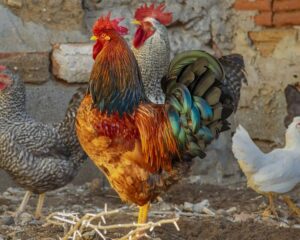Vaquita is the smallest marine porpoise in the world and has been highly endangered for the last 20 years. These sea mammals can be found in their one and only habitat – the northern Gulf of California aka Sea of Cortez, which is a home to many marine species.
Thanks to humanity, we have already witnessed the extinction of a Chinese river dolphin called Baiji and populations of many other sea animals are rapidly declining. Sea transport as a cause of pollution and habitat destruction is one of the main reason for this decline. Vaquitas however are endangered mostly by illegal and irresponsible gill net fishing.
- It has been estimated that there are only 60 individuals remaining with less than a half of them being reproductive females.
- Recent studies however, show that in the last 5 years their population has decreased by 90% leaving only 30 of them alive in the wild.
- Due to human acts, their population declines at the rate of 18.5% per year. | CIRVA
Although these tiny dolphins are protected by law and cannot be poached, they still fall victims of illegal fishing. The reason for this is a hunt for another endangered marine species which unfortunately is highly demanded in certain parts of the world.

Totoaba bass
Once again, China seems to be one of the key reasons for not only animal exploitation but in this case – near extinction. But Vaquitas live in Mexico you say. Yes, they do. Unfortunately they suffer as by catch in gill nets aiming to capture a Totoaba bass which also lives in the Sea of Cortez. Totoaba’s bladder is highly demanded on the Chinese black market where it is believed to have medical (magical) properties. Due to rarity and supposed magical powers, fishermen can earn more than a month’s salary if they sell one Totoaba bass bladder to a trafficker. Not to mention selling one directly to a client.
As a result, Totoabas have been on the list of endangered fish for over 50 years and although they made a small comeback a few years ago, this only motivated the fishermen to resume the hunt. We’re back to square 1.

What can we do?
Speak up
Chris Johnson spent 3 years on a documentary, “Vaquita – Last Chance for the Desert Porpoise.” He suggests that social media can bring help to these animals by making people aware and showing disapproval. It’s yet another of these issues that are kept quiet and animals eventually can only be seen in history books.
It cant be emphasized enough, how important your voice is. Spread the message, sign petitions, boycott unethical trade, support those who help, be compassionate.
Sign petitions to Mexican Government on change.org or WWF
Sign to stop the illegal trade in China on Force Change
Sea Shepherds – Milagro III
If you read one of my previous posts about Veggie world in London, you will be familiar with the Sea Shepherds organisation. One of the projects they tried to raise to people on the day was the Operation Milagro III which focuses on the rescue and protection of Vaquitas.
Very importantly, this organisation partners with the Mexican government to ensure the protection of the Vaquita refuge waters. They also collect data and documentation and patrol the sea for illegal poachers. Collaboration with marine biologists and researchers is also an inherent task of the mission.

When the fame is used for the good
Support Leonardo DiCaprio and spread his message of Vaquita protection. He started publicly pressing the Mexican government to do more to save these small porpoises. Although regulations are in place to protect their habitat, they will have no effect if the government doesn’t enforce them and punish for their violation.
Urgent action needed this week or Vaquitas may be gone by next @CITES. RT to tell China, the US, and Mexico to act now! #CITES #CoP17 pic.twitter.com/iGyfQobt05
— Leonardo DiCaprio (@LeoDiCaprio) September 28, 2016
Since then, DiCaprio’s foundation signed an agreement with the Mexican government to permanently ban the use of gill nets. Overnight fishing which caused enormous trouble with identification of the poachers, has also been on Leo’s radar. DiCaprio’s and Carlos Slim’s foundations obliged to create alternative ways of making a living for people who used to hunt in the Sea of Cortez as a source of income.
Although this enhances the law, it might be too late and too little to save such small numbers of animals that are left. Lack of law enforcement, rising demand and smuggling of animal parts are issues that don’t disappear overnight. The threat of Vaquitas extinction is only a side effect of multiple social issues within the Mexican government.
International save the Vaquita day – 8/7/2017
The aim of this event organised by VIVA vaquita is to make people aware of Vaquitas and inspire them to act, by singing petitions and raising fund for future research work on this porpoise.
The events are held mainly in USA and Mexico but it will also take place in UK; Whitby, Yorkshire & Ross-shire, Scotland. Click the link above for details.
Rescue by capture
Vaquita’s situation has reached a point where we are almost certain of their extinction in the very near future if fishermen don’t change their behavior. Because they are endangered in their own home, the only way to save the species is to capture the remaining individuals and put them in a sanctuary on a breeding programme.
The Vaquita rescue project is funded by the Mexican government which provided $3m to the cause and the US Association of Zoos and Aquariums which provides $1m.
The Operation will use acoustic sensors and trained dolphins to find and track Vaquitas over several months followed by their capture in October, 2017.
The capture process is very dangerous. It is highly difficult to predict how the animal will respond and react in a closed environment. Some porpoises don’t seem too fussed about capture but the Vaquitas were never purposely caught and transported to closed conditions. If their response to capture will be relatively stress free, they will be taken to a sanctuary in San Felipe, Mexico.
Although, it’s a very risky method, it is the only one that’s left to save this tiny – panda looking – sea mammal.




